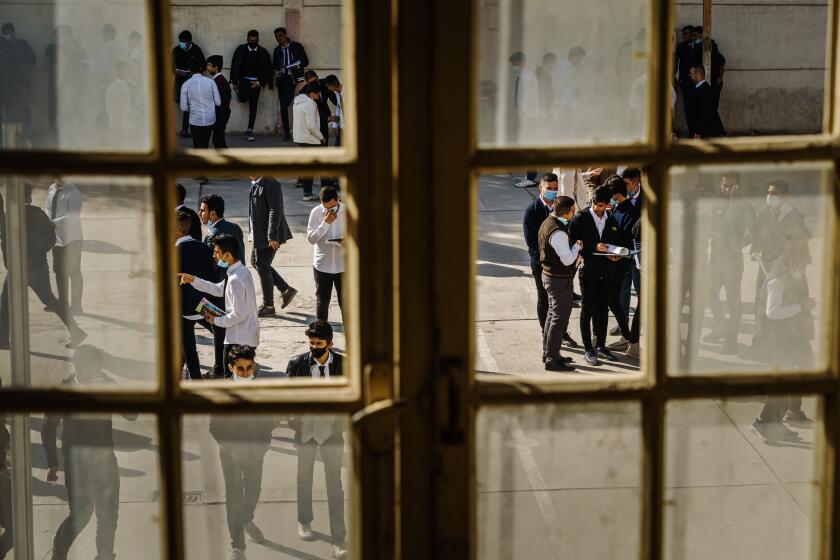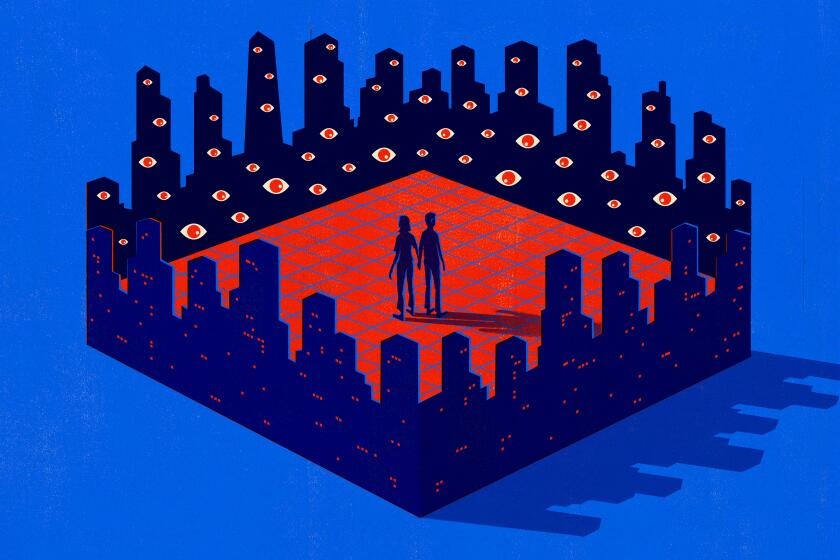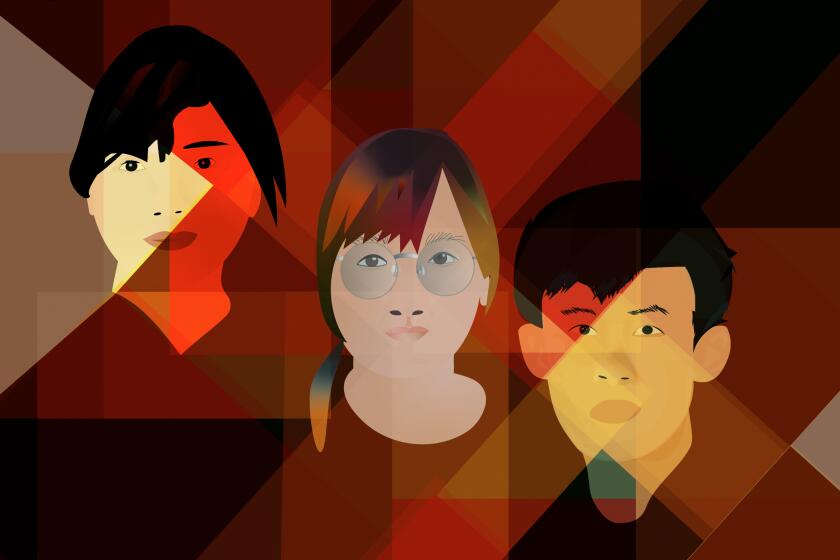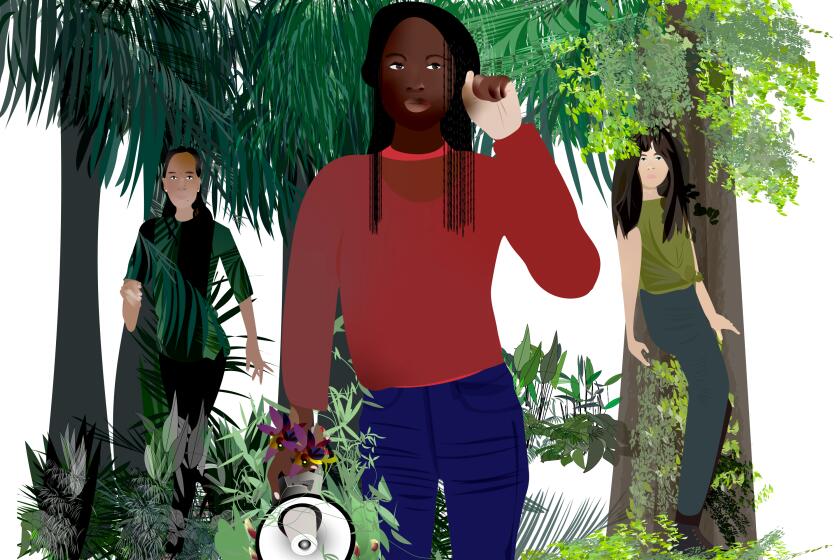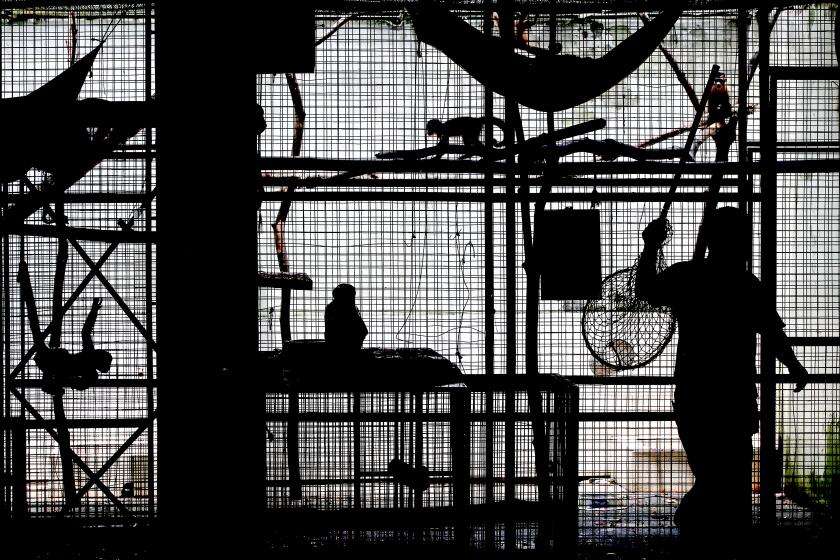- Share via
BEIJING — He stood in Tiananmen Square, wearing sneakers, track pants and a black T-shirt printed with the date of a massacre.
It was June 4, 2019, the 30th anniversary of the killing of hundreds of pro-democracy protesters in Beijing. Dong Zehua, then 28, hadn’t even been born when tanks clattered over the square and the world watched. The events on that bloody day in 1989 weren’t taught in school or ever mentioned in Chinese media. But Dong knew what had happened.
Tech-savvy and good at English, Dong had mastered circumventing the Great Firewall. He had learned about the anti-government protests and deaths through foreign websites banned in China. As the anniversary approached, he booked a train ticket and traveled to Beijing, keeping the T-shirt hidden until he was on the square.
Dong was a jiulinghou, as those born after 1990 are called in China. They are a nationalistic generation raised on “patriotic education” and state propaganda in a prosperous, increasingly strong China. Many have little knowledge of the traumas their parents endured or the ongoing suppression of Chinese citizens around them.
The World They Inherit
This is the first in a series of stories about global youth. They are inheriting a planet of multiplying dangers. The young are more connected than any generation in history, linked at light-speed across continents and cultures. Yet they are threatened by the old ways of power. Can they change it?
But there are outliers among them. A handful of Chinese youth like Dong have tried to expose and preserve China’s true history and honor those erased from the official story. They do so despite censorship, imprisonment and growing pressure from peers who are encouraged to report on anyone who criticizes the state.
Counter-narratives have been crushed by a Communist Party determined to carefully choreograph its 100th anniversary in July. That means deleting official wrongs, promoting a whitewashed version of party history, punishing those who deviate — and in recent days, expunging the records of that punishment as well.
“What they’re doing is to control every Chinese person’s thinking and erase every person’s history,” Dong said. “They want to write history themselves.”
To Dong’s surprise, two other young people were in the square the morning he arrived: Yuan Shuai, 24, a recent college graduate from Inner Mongolia working at an advertising company in Beijing, and Gao Tianqi, 21, a Beijinger attending university abroad who’d come back for the summer. Gao carried a yellow umbrella — a symbol of Hong Kong’s youth-led democracy movement — with the number “30” written on it in black marker.
They hatched a plan to interview foreigners on the square and post a video of their comments online.
“It was a normal, simple sense of justice in our hearts, thinking: I want to do this, because someone should,” said Dong. “Someone should commemorate. This shouldn’t be forgotten.”
The three were arrested within hours. Yuan and Dong were convicted of “picking quarrels and provoking troubles” and sentenced, respectively, to six and seven months in jail. Gao was let go after 38 days of detention without trial.
Dong was quiet for several months after his release. But on June 4, 2020, he emailed The Times about his experience and provided a link to a judgment issued by the Beijing Dongcheng People’s Court. The Times verified the judgment, which was documented in a public archive of court rulings kept by the Supreme People’s Court online.
Last month, he contacted The Times again: The record of his arrest had vanished.
“In their eyes, it’s as if our detention never happened. It’s as if they never did it to us,” Dong said. “They deleted it … as if they can just delete all Chinese people’s memories.... With one stroke of the arm they can cover the sky.”
It wasn’t just Dong’s case. Thousands of politically sensitive cases disappeared last month from China Judgments Online, the public archive.
The deletions were first noticed by a Chinese activist with the Twitter handle @SpeechFreedomCN, who has been keeping an archive of speech crime cases. He has tracked more than 2,040 cases, dating to 2013, based on official documentation in China Judgments Online or public security bureaus’ reports on the social media apps Weibo and WeChat.
There are more than 600 cases of punishment related to speech about COVID-19. Most are fines, “education and warning,” or detention for up to two weeks for posting online messages about the coronavirus or the government response.
They include the case of Li Wenliang, the young doctor who died of the virus after authorities reprimanded him for warning others about the outbreak, but also hundreds of lesser-known ones: a Qinghai man given 10 months of jail for tweets criticizing China’s COVID response; a Beijinger jailed six months for warning classmates in a WeChat group about a COVID case; a popular Weibo blogger in Hebei province given six months of prison for compiling stories of Wuhan residents’ suffering during lockdown.
Other commonly punished speech “crimes” include insulting the police, petitioning for help from the central government, or trying to expose government corruption. Many cases punish Chinese citizens for activity on Twitter and Facebook, evidence that their behavior beyond the firewall is also under surveillance.
Last month, the activist — who asked not to be identified for his protection — noticed that several of the key searches he conducts on the archive each day were suddenly coming up blank. Terms such as “Weibo + picking quarrels and provoking troubles,” “Twitter + picking quarrels and provoking troubles,” or “national leaders” came back with zero results.
The Times repeated the activist’s search to confirm the cases’ disappearance, reviewed a selection of screenshots in his archive of court cases that used to be online, and called 12 courts across China to inquire about the deleted cases.
Two of the courts, both in Hubei province, did not pick up repeated calls. Employees of the courts in Shanghai and the provinces of Guangdong and Jiangsu confirmed that the cases existed and were as described in the screenshots, but did not explain why they’d been taken offline. Others declined to provide information to The Times.
“If we think it can be shown then it is, and if we think it shouldn’t, we take it off,” an employee at a local court in Hunan province told The Times over the phone. “There must be a reason it can’t be shown, but this is a work secret. We don’t need to tell anyone and you don’t need to understand.”
The activist said China’s tolerance for free speech is evaporating: “We thought the people being arrested for speech online were only very extreme cases,” he said. “But when we looked closely, we saw many people are not ‘serious’ at all and yet are detained. Many people without much influence are also arrested. Control is getting stricter and stricter.”
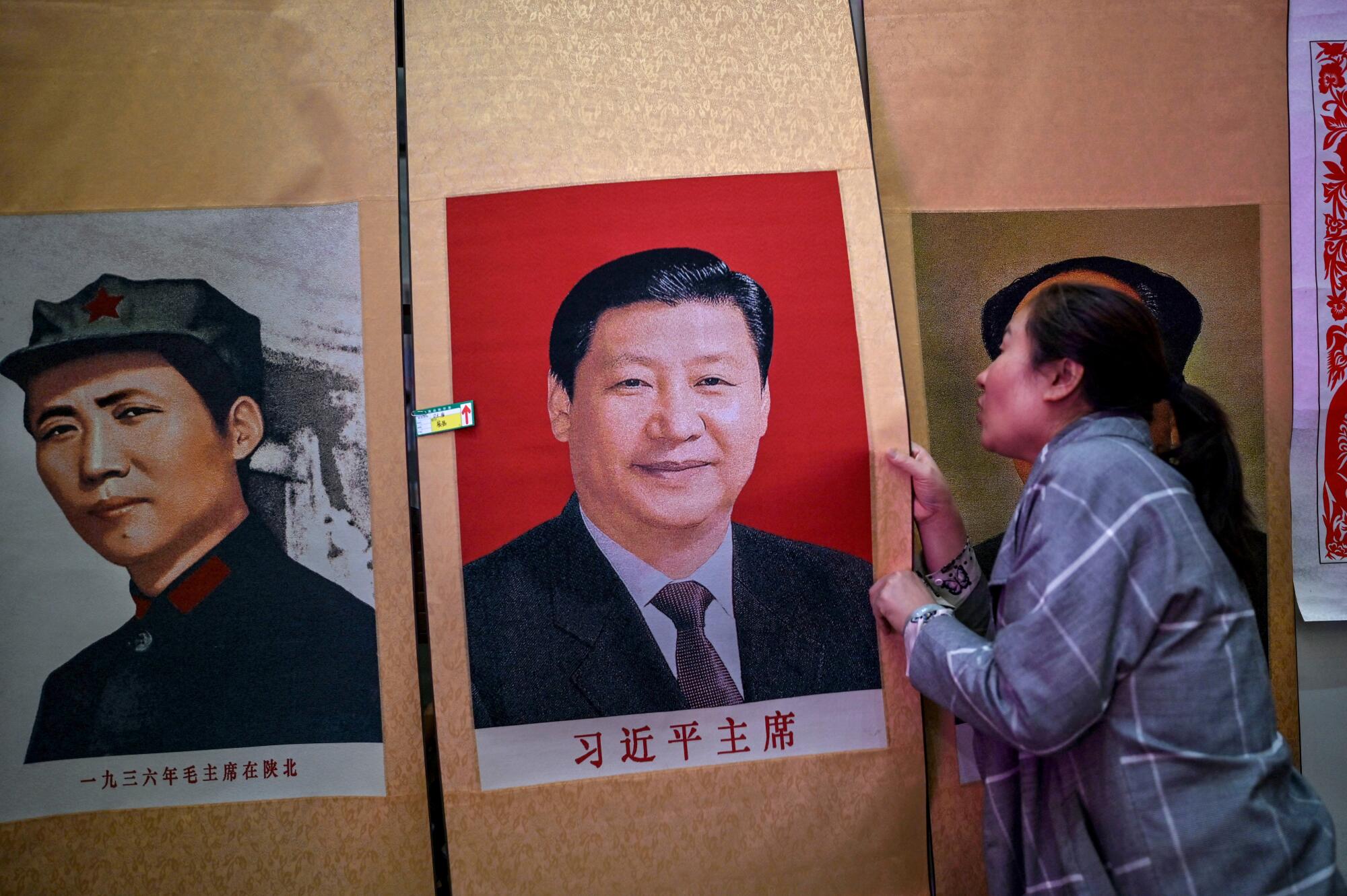
This tightening comes as China is emerging as a global power and the Communist Party prepares for its centennial. President Xi Jinping has launched a nationwide campaign for citizens to study newly revised volumes of Communist Party history and celebrate its achievements. It is a brazen reinvention that will keep younger generations living with an airbrushed past.
All cinemas in China have been ordered to screen at least two nationalistic propaganda films each week. Schools, hospitals, lawyers associations, and Buddhist and Taoist temples have held “Red” singing competitions, patriotic poetry recitations and political study sessions.
The newest edition of official party history no longer criticizes Mao Zedong for chaos and killings in the 1960s and ‘70s, but praises his Cultural Revolution as an anti-corruption measure and blames the upheavals on “insufficient implementation of his correct ideology.”
The party narrative glosses over the failures of the Great Leap Forward, making no mention of the tens of millions who starved to death in the 1950s and ‘60s. It calls the Tiananmen Square protests a “political storm” incited by “anti-communist, anti-socialist foreign enemy forces” backing an “extremely small minority.” It mentions no killing of protesters — some estimates say thousands died — only that authorities took “decisive measures to calm the counterrevolutionary riots.”
More than a quarter of the book, which was published in February, is devoted to China’s “new era” under Xi, in which the “China dream” of great national rejuvenation is fulfilled. Five pages describe the COVID-19 outbreak, praising Xi’s leadership of the response as a demonstration of how the party always puts “the people” first.
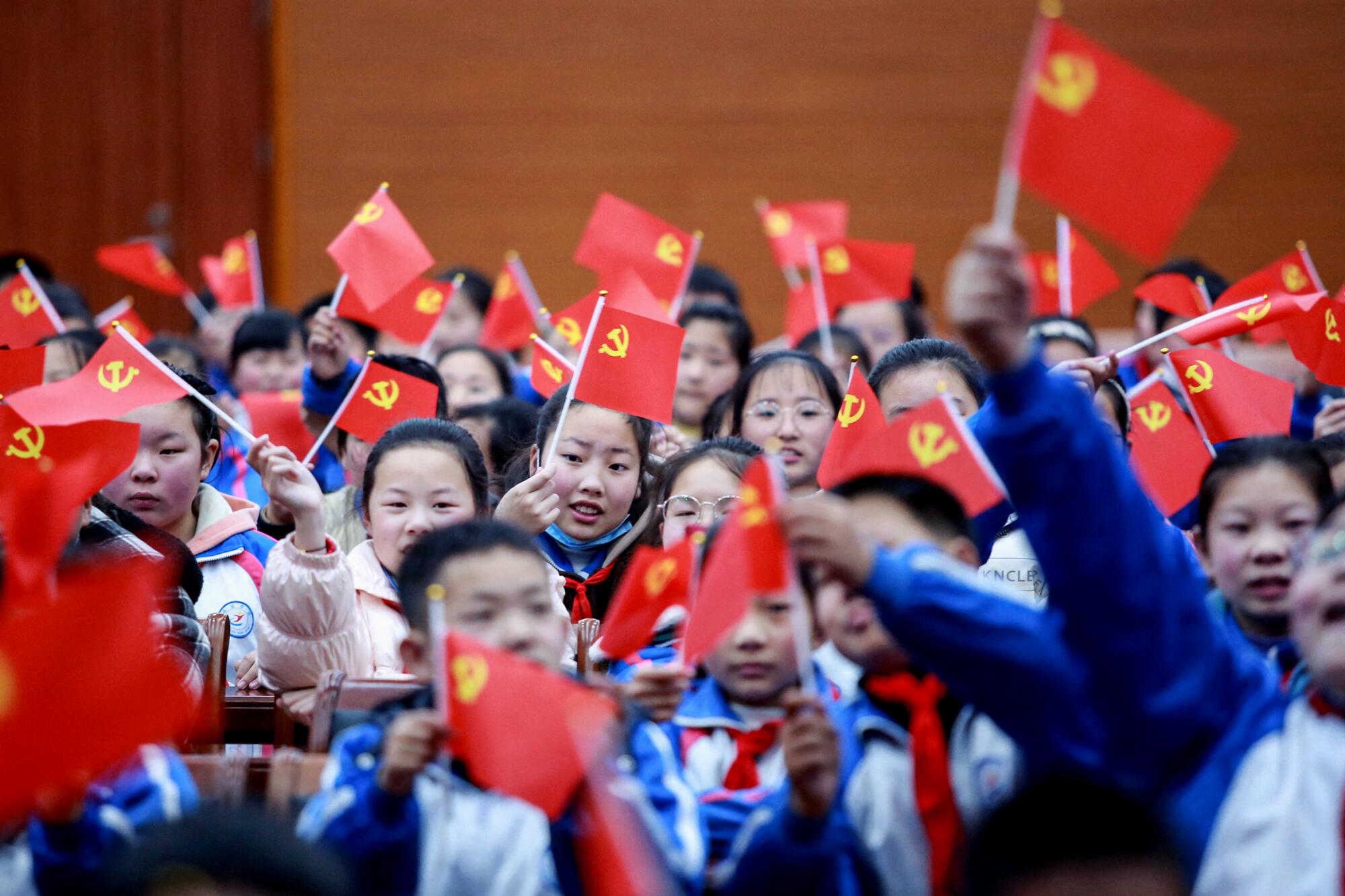
Meanwhile, those who deviate from Beijing’s narrative of harmony and prosperity are punished.
Last month, two computer coders went on trial in Beijing for “picking quarrels and provoking troubles,” the same blanket crime applied to Dong for his T-shirt in Tiananmen Square. They were Cai Wei, 27, and Chen Mei, 28, friends who’d created an online archive of articles called Terminus2049, hosted on GitHub, about the COVID-19 outbreak, whistleblower doctors and lockdown in Wuhan.
Many were reports by Chinese journalists who risked their lives covering the early days of the coronavirus outbreak in Wuhan, only to have their articles censored as Xi pushed for “positive energy” propaganda focused on praising heroes, not marking human suffering.
Cai and Chen were detained in April 2020 and had been held for more than a year before they went to trial. Their families were not allowed to see them, hire personal defense lawyers for them or examine the documents explaining charges against them, according to Chen’s older brother Chen Kun, who now lives in France.
“Ten years ago, this wouldn’t be a problem. You wouldn’t be detained for just archiving information. At most they’d threaten you and ‘have tea,’” Chen Kun told The Times in a phone interview, using a common euphemism for disciplinary meetings with authorities. “We didn’t realize that in 2019 and 2020, China’s internet control became much stricter than in the past.”
Chen Kun was born in the ‘80s and had lived in a China with access to Google, Twitter, YouTube — all platforms that are blocked today. Internet access gave him not only understanding of China’s history, but also connection with like-minded friends and the chance to take small actions for social progress.
He had spent years working for Liren, a grass-roots organization that ran rural libraries and summer camps promoting civic engagement among underprivileged Chinese youth. His brother had met Cai at a Liren camp 10 years ago, when they’d been inspired to work on behalf of marginalized groups.
Liren was shut down in 2014. Chen Kun, who was head of the organization at that time, spent several months in detention.
But the brothers kept their ideals. The younger Chen worked for a charity in Beijing that aided people with disabilities. Online, he and Cai created Terminus2049, archiving censored articles about China’s #MeToo movement, labor protests and forced removal of migrant workers from Beijing. They also ran a discussion forum that didn’t require real-name registration, unlike most Chinese social media.
In earlier years, hosting such archives and forums was safe. Those arrested for speech tended to be “long-term rights activists and anti-CCP dissidents,” Chen Kun said. But now, ordinary people are being detained for actions as innocuous as a retweet.
“We are watching China’s speech environment being squeezed bit by bit until you cannot speak,” he said. Even worse, he said, the pressure was coming not only from officials but also from ordinary people — friends, family, neighbors and netizens who are increasingly reporting one another’s speech, especially online.
Official statistics show that mutual tattling has increased. In 2020, China’s Central Cyberspace Administration handled 163 million reports of improper online speech, an increase of 17.4% from 2019. The majority came from Chinese social media platforms including Weibo, Baidu, Alibaba and Tencent. More than 60% were reports of sexually inappropriate content, while 7.7% (about 12.5 million reports) were political and 1.1% were “rumors.”
In April, China’s Central Cyberspace Administration issued a new request for reports of “hazardous information involving historical nihilism.” It offered phone, app and website options for tattling on anyone caught “twisting” party history, criticizing party leaders, ideology or policy, “smearing” heroes and martyrs, or speaking negatively of China’s traditional, revolutionary or modern culture.
Mutual reporting continued to grow, with nearly 15 million reports that month, an increase of 38.4% from March and a 2.6% increase from April 2020.
“It will be like the Cultural Revolution,” Chen Kun said. “Normal people stand up to struggle against you. This makes you feel really hopeless.”
That sense of nationalistic, voluntary mutual censorship is particularly strong among the young, he said, especially urban youth who grew up in a rising China with no knowledge of their own history — aside from the the triumphalist narratives taught in school — and no experience of open information.
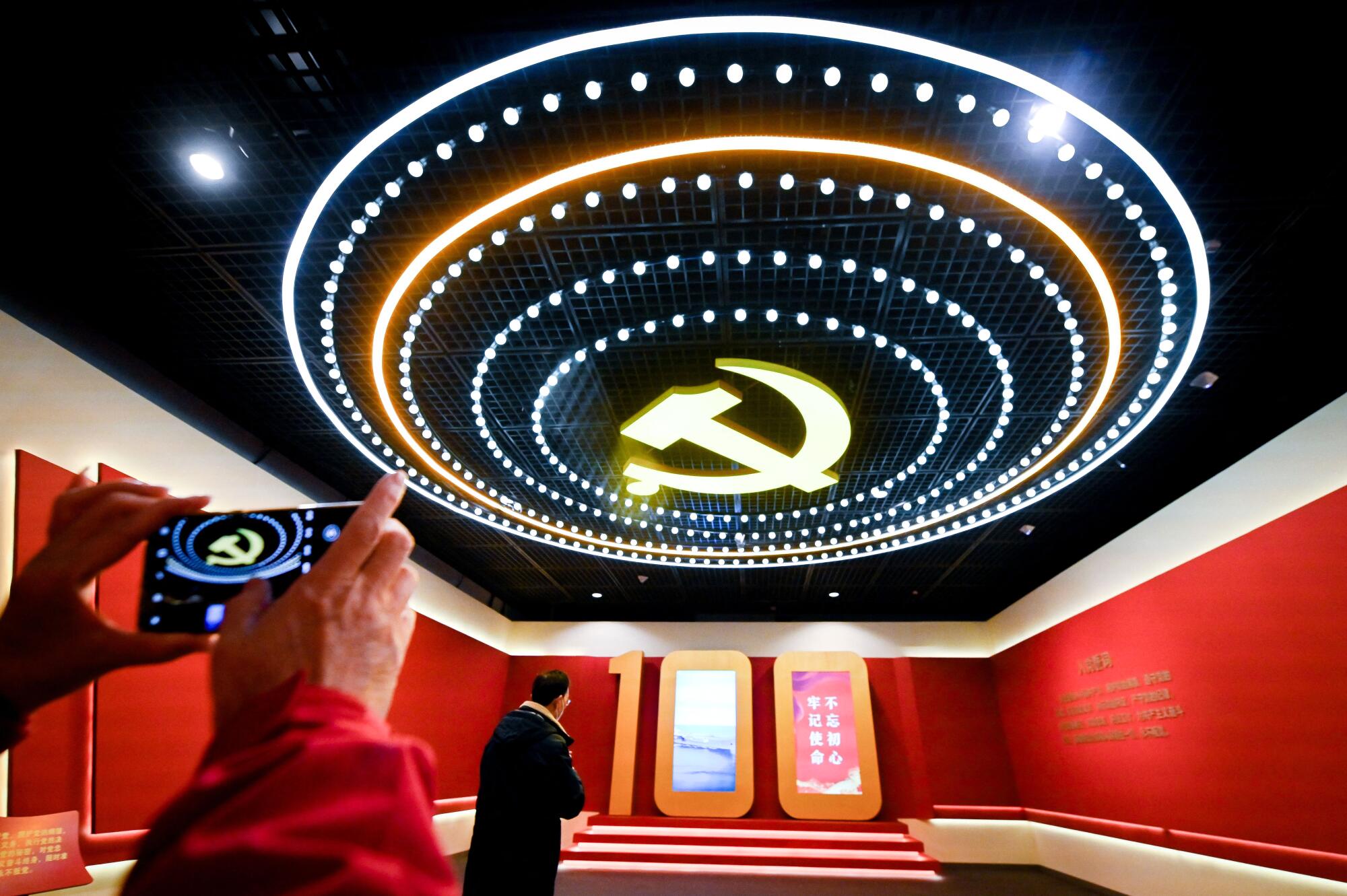
Even Dong, Yuan and Gao, the three who went to Tiananmen Square on the anniversary of the massacre, had believed that the Chinese government today would never use violence against its youth. Born in 1991, 1995 and 1998, respectively, they were highly educated city kids: “Maybe because we are young, we were thinking too well of the government,” said Dong. “We never imagined it would treat its own people this way.”
The day they were arrested in the square, police strip-searched them and made them stand for hours against a wall, then interrogated them overnight in metal “tiger chairs” that bound their wrists and ankles. They refused to believe that the three had not known one another beforehand or received foreign support, Dong said. In their thinking, it made no sense for anyone born after 1989 to care about what happened then.
“They don’t believe that actually, a lot of people in China have conscience,” said Dong. “It has nothing to do with your age, education, or whether your family has been hurt.”
Interrogators told Dong he’d receive a lighter sentence if he confessed to the “picking quarrels” crime. He did, but still spent seven months in Beijing’s Dongcheng district detention center, in a cell of 20 people squeezed into about 430 square feet.
Inside, they were forced to watch “educational videos” praising the government and write self-criticisms and confessions. They were fed mostly water and cabbage. At night, they took two-hour shifts patrolling the cell, where the light was never turned off. In the daytime, aside from the reeducation sessions, they sat on a mat in silence.
Dong fears that his peers and those younger than him still don’t know what lies behind government propaganda.
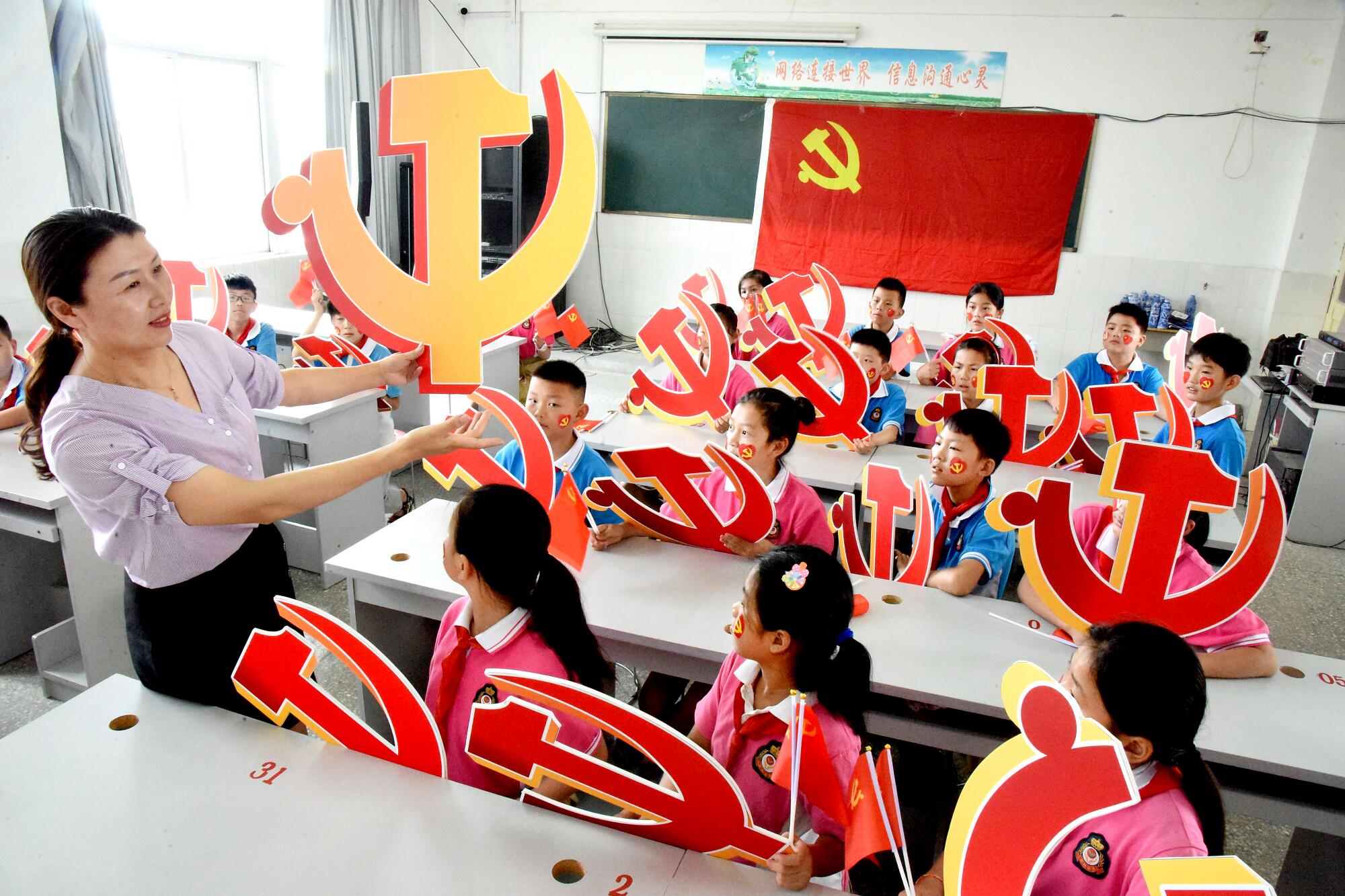
“Young people these days are completely led by the government narrative. It’s the only information they come into contact with,” he said. Many of the linglinghou and lingwuhou, those born after 2000 and 2005, are the quickest to point fingers at others, he said, accusing anyone who questions the government of backing from “foreign forces.”
It’s a “terrifying” and “very narrow” way of looking at the world, he said, one intentionally constructed by the government.
“Young people across the world should be the most anti-establishment, the most open and alive in their thinking — but not in China. In China, the youth have been shut in the government’s thinking cage for too long and cannot find an exit,” he said.
Police monitored Dong after his release, telling him he could not go to Beijing and threatening him and his parents anytime he made WeChat posts that they deemed sensitive. “I feel that I have just moved from a smaller prison to a bigger one,” he said.
In the days before June 4 this year, he received multiple warnings to keep quiet. Yet he asked to tell his story with his real name. “We don’t need to use lies. We don’t need to hide. We haven’t done anything wrong,” he said.
The world should know of those being silenced every day in China, he said, even if their records at home are wiped away.
(This is the first in a series of occasional stories about the challenges the young face in an increasingly perilous world. Reporting for the series was supported by a grant from the Pulitzer Center on Crisis Reporting.)
More to Read
Sign up for Essential California
The most important California stories and recommendations in your inbox every morning.
You may occasionally receive promotional content from the Los Angeles Times.

